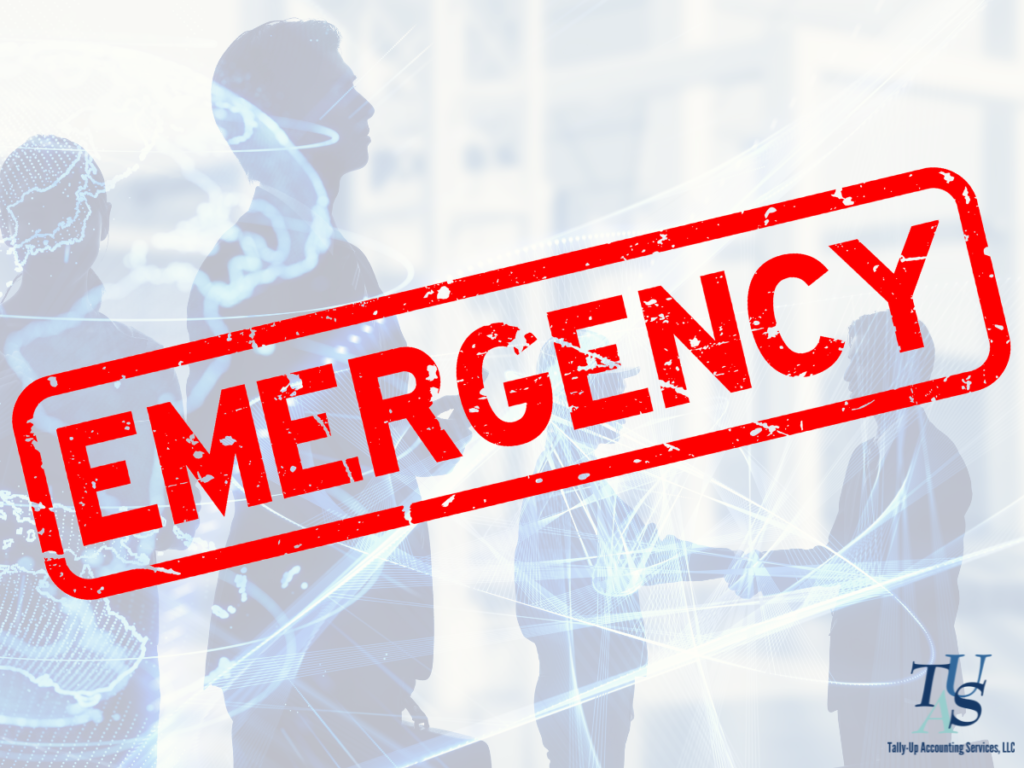Recently, I was getting ready to head out to an important client meeting when I had an emergency pop up that needed to be dealt with immediately. Nothing life threatening, but still serious enough that I had to drop everything and address it. As a business owner, my clients are my priority, but this situation needed to be dealt with NOW. As a company of one, I needed to figure out how to best manage the situation as well as my client’s needs.
Emergencies happen and as a small business owner, are you prepared to deal with them?
Prior to my crisis popping up, I was working with a client that was impacted by the fires in New Mexico, which if you are in New Mexico, you likely are aware that the impact of these fires has been catastrophic for thousands of people and hundreds of businesses.
Emergencies come with no warning, and they can come in a variety of situations, such as personal health issues or crises and/or community crises. Either situation can be extremely difficult to manage for small business owners or companies of one, due to resources.
While you can’t predict or schedule unexpected events, the best preparation is twofold:
- Create a back-up plan
- Have a solid foundation of communication and trust built with your clients
Let’s look at both of these elements from the perspective of a company of one or a company with a micro team.
Having a Back-Up Plan
When you are an ultra-small company, it can be incredibly challenging to lose resources, which makes having a back-up plan so important. A few things to consider for your back-up plan:
- Standard Operating Procedures manual – this practice has been around for decades in larger companies, but smaller companies
can benefit from documenting the process for key functions in the company. The goal is to document the process so well that a completely new person can follow step-by-step instructions and be able to complete the task. This process can also serve for training new employees. - Cross-training – Once you have your major processes documented, share with other employees so that you are not reliant on one person for critical tasks.
- Referral partnerships – Create cooperative relationships with other business owners in your field. This can be especially helpful for companies of one in addition to smaller companies. As a solopreneur, I have key accountant and bookkeeper contacts that I know I could trust to assist a client if for some reason I am unable to do the work myself. A client of mine has similar relationships with companies in her field which she refers customers to if she does not have the workforce to meet the customer’s needs.
These relationships are generally reciprocal and are built on mutual trust and respect, as well as the desire to serve the customer as best as possible. Your job is to provide solutions to your clients and sometimes that will come in the form of temporary referrals or work from somebody else.
Having a Solid Foundation of Communication and Trust
Many small businesses, especially companies of one and have relationships with their customers and clients, not just transactions. These relationships are based on trust – trust in services provided, trust in quality of work, trust in the people they are working with. Communication is key in keeping this trust with your customers.
If you find yourself in an emergency that will impact your clients or customers, make sure your lines of communication wide open.
-
Communicate with your client and let them know of the situation (as much as appropriate). Let them know how you think they may be impacted and what your plan is to meet their needs. Be prepared to offer any special concessions to alleviate any impact to their business.
-
Connect – If you are working with a referral partner, connect them both and asked to be kept in the loop on project milestones.
-
Update – Provide relevant updates on your situation as you are able to.
No one is immune to emergencies and if you have solid relationships with your clients, they will understand the situation and work with you. Great clients may even support you in your crisis. If you have clients that simply don’t understand or care that you have an emergency, you may want to reevaluate that relationship and consider if it is worth keeping.
Taking Care of What Needs to be Taken Care of
Emergencies are difficult. As a business owner, your instinct may to take care of your customer first, but in a true emergency, you need to take care of the situation, which may mean putting your personal priorities first. This is the time you need to let your back up plan manage the business situation. Hopefully, it will be a temporary situation and you will be able to return your focus to your business and customers when the time is right.

